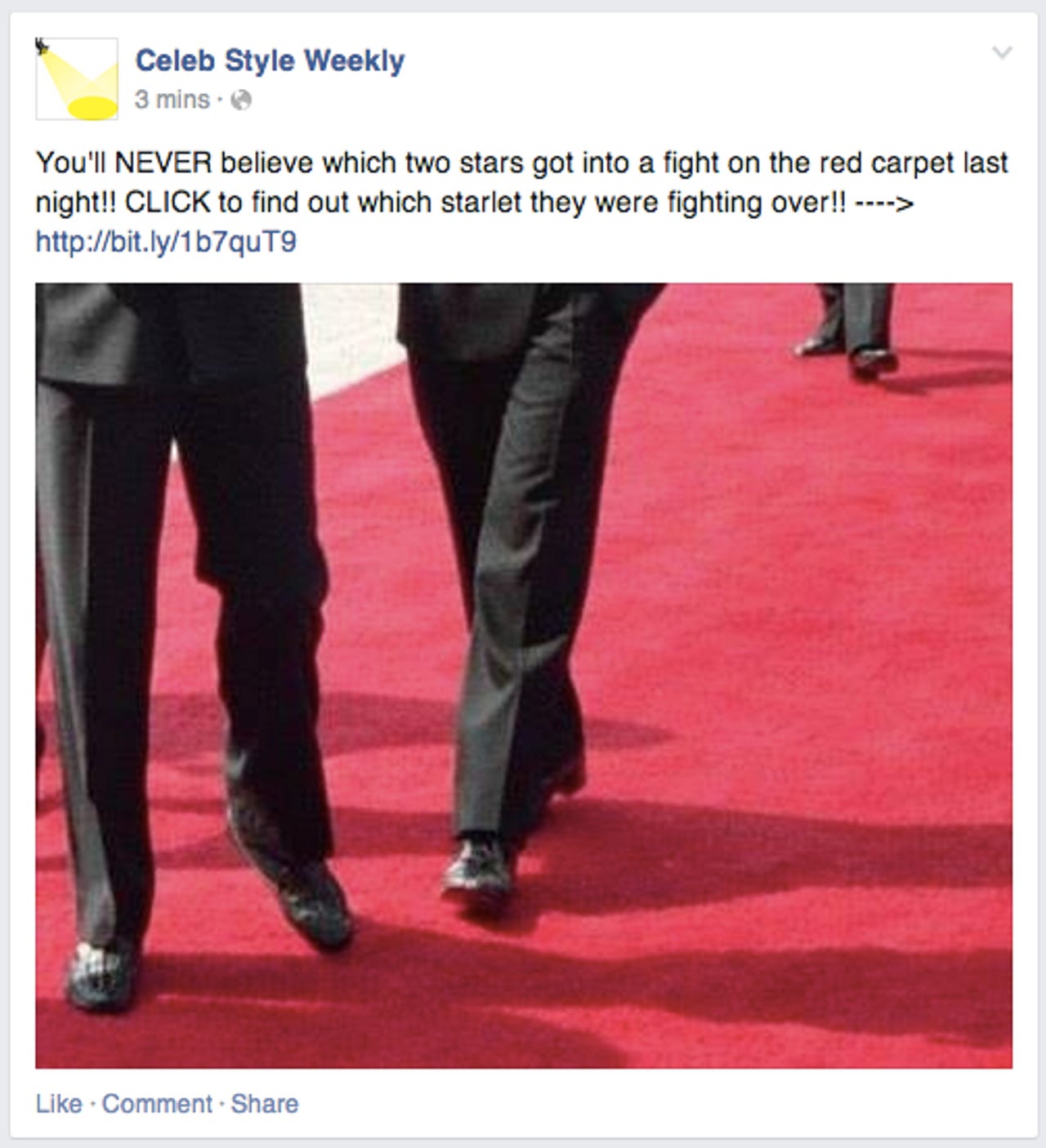Facebook's click-bait ban means marketers must stay agile

Facebook made some updates Monday that it says will help weed out the spammy, "click bait" posts that keep cluttering up newsfeeds.
For example:

Featured
In a blog post, Facebook research scientist Khalid El-Arini and product specialist Joyce Tang described click-baiting as links with a teaser headline that encourage clicks in order to "see more," without giving away much information about what's at the other end.
To the chagrin of most social media users (and journalists alike), the practice has become common amongst marketers – and for good reason.
Facebook admits that click-bait posts tend to get a lot of clicks, which in turn increase their prominence in News Feed and the number of people the they're suggested to.
So with the updates, Facebook will look at the amount of stickiness and user engagement garnered by heavily clicked links. For example, if a Facebook user clicks through a link and bounces right back to Facebook, chances are they didn't find what they wanted and the link is likely click-bait spam.
Facebook said it would also begin monitoring the ratio of people clicking on a link compared to the number of people discussing and sharing it. Time on spent on page is popular metric with Internet publishers, and Facebook will use it with the theory that more clicks and less engagement indicates click-bait.
So what does this mean for marketers, Facebook businesses and digital media companies? The most obvious answer is that they'll need to stay ahead of the curve, as well as maintain an arsenal of new strategies to employ on social networks. Facebook is always tweaking the News Feed algorithm, so it's best to not get too comfortable with a single approach.
And for the ones that continue to post click-bait, Facebook has a clear message:
A small set of publishers who are frequently posting links with click-bait headlines that many people don't spend time reading after they click through may see their distribution decrease in the next few months.